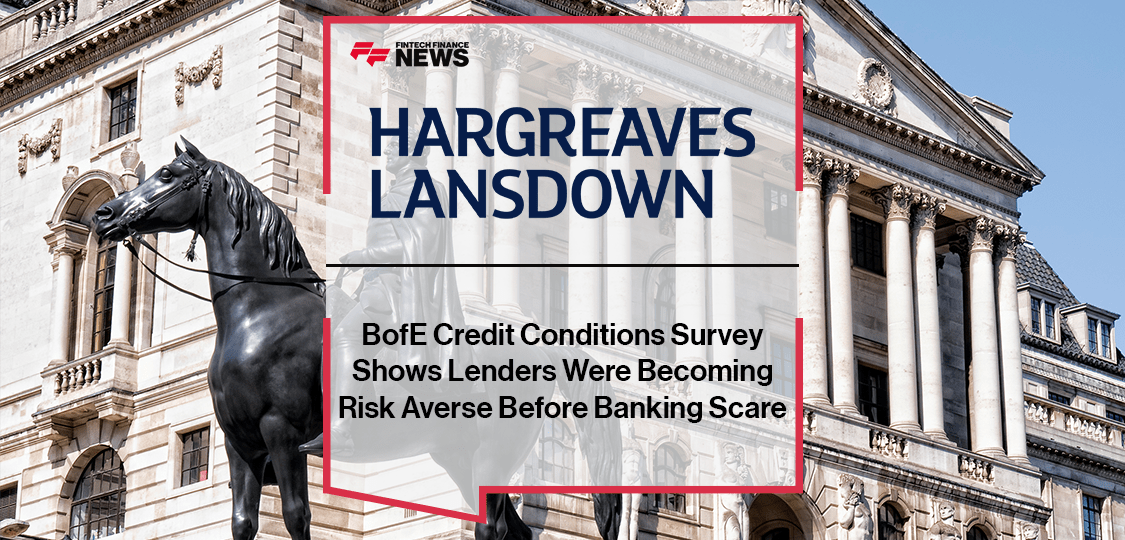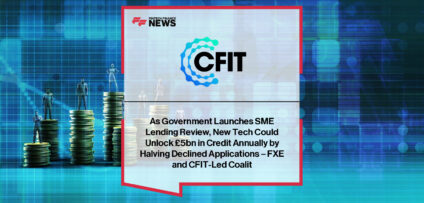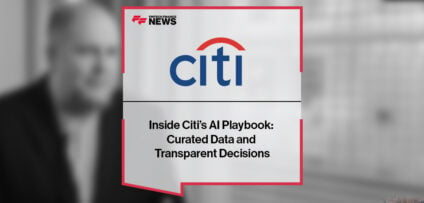Breaking News

BofE Credit Conditions Survey Shows Lenders Were Becoming Risk Averse Before Banking Scare
The Bank of England (BofE) Credit Conditions Survey for Q1 2023 shows that lenders were already becoming more risk-averse before the banking crisis in March, with interest-free loan periods decreasing and default rates for unsecured lending increasing. The survey suggests that credit conditions are expected to tighten further, but the full impact of the banking crisis is yet to be understood. The collapse of Silicon Valley Bank is expected to cause a mild recession in the US, and the Bank of England is concerned that recent bank runs may prompt lenders to increase their capital buffers even further. As a result, banks’ net income margins may face a squeeze despite benefiting from high-interest rates.
Susannah Streeter, Head of Money and Markets, Hargreaves Lansdown comments:
‘’Watchful eyes are on any sign of credit conditions tightening as a result of the banking crisis which erupted in March, and the environment in the run up to the turbulence showed that lenders were already becoming more risk averse. The interest free loan periods available for credit cards decreased in the first quarter of the year and are expected to narrow further. It’s little surprise that lenders were tightening up, given that default rates for unsecured lending had already increased during the first few months of the year and were expected to lift again towards the summer. Lenders were already expecting that there will be less secured credit available for home loans during the Spring months. A squeeze in lending to big firms wasn’t expected in the second quarter, although this may be because demand for credit from larger corporates had decreased at the start of the year.
Due to the lag effect of the banking crisis, it’s too early to establish just how much the picture will have changed, but central banks are bracing for a further tightening of credit conditions. This was clear from the latest Fed minutes and from the most recent comments from the governor of the Bank of England. The repercussions from the collapse of Silicon Valley Bank are expected to tip the US economy into a mild recession, and the Bank of England is also concerned that the rapid nature of recent bank runs may mean lenders will have to increase their capital buffers even further to protect themselves, in addition to the cushions they have built up since the financial crisis. Banks have benefited from high interest rates which have boosted their net income margins, but as stormier weather approaches and the need to attract in more deposits rises, those net income margins face a squeeze.’’
People In This Post
Companies In This Post
- GNOMI Launches the Only ‘Finance Mode’ with Real-Time Global Earnings Calls and Generative Market Intelligence Read more
- Cross River Launches Stablecoin Payments With Infrastructure to Power the Future of Onchain Finance Read more
- Tidalwave Raises $22M Series A, on Track to Reach 4% of U.S. Mortgage Market Read more
- Emerging Market Opportunities: The Next Billion Customers | Freemarket, Fincra and Axiym | FF Virtual Arena #358 Read more
- Inside Citi’s AI Playbook: Curated Data and Transparent Decisions Read more
















